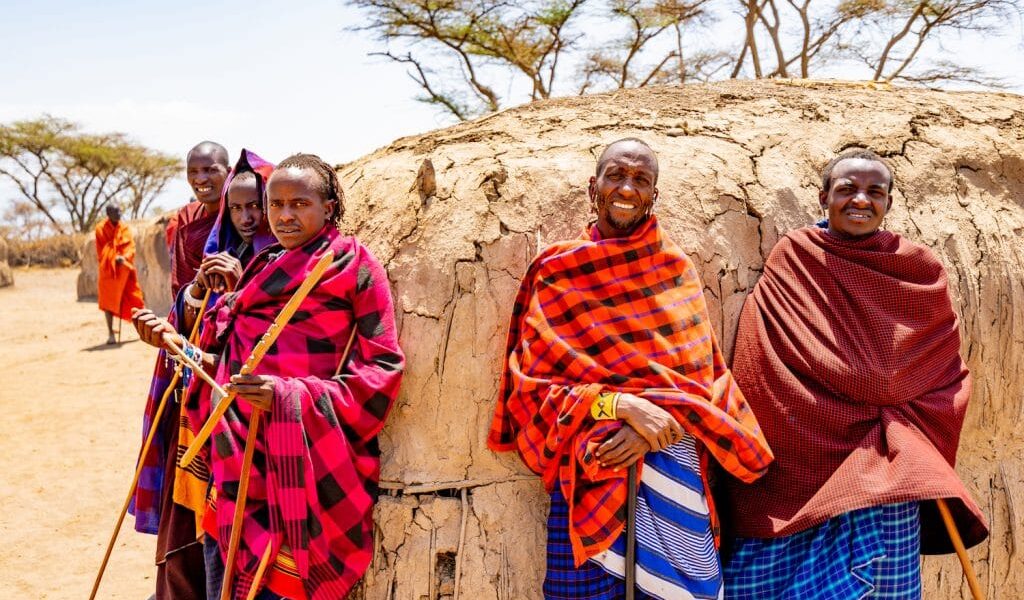Swahili or Kiswahili (whatever you choose to call it) is an Arabic – Persian Language that dates back to 500 – 1000AD. In Swahili, the correct word to describe the language is Kiswahili, and the people who speak Kiswahili as their mother tongue are called Waswahili. Basic Kiswahili for travelers
Travelers planning to go on a holiday to East Africa should consider learning some basics of the Kiswahili language just before you go. Whether you’re visiting on your first Safari or plan to spend longer volunteering in East Africa, knowing a few Phrases of the Swahili or Kiswahili language will make a great impact on helping you relate better with the communities or countrymen during your entire trip to east Africa.
A Little History about Swahili Or Kiswahili Language
Kiswahili or Swahili is the most widely spoken language in sub-Saharan Africa and acts as the common tongue for most East Africans (although it’s not necessarily their first language). In Kenya and Tanzania, Swahili is an official language alongside English, and primary school children are usually taught in Kiswahili. Many Ugandans understand and or speak a bit of Swahili, although it’s rarely spoken outside the capital, Kampala.
How to learn some basic Swahili ahead of your travel to East Africa Basic Kiswahili for travelers
There are quite a few online resources that will conduct online Swahili lessons for beginners for free. Duolingo and Fluent in 3 months are just a few of the many available options on the internet you may want to look at. However, for travelers simply looking to learn a few interesting words of Swahili to keep you going while on a holiday around East Africa, we will share the Basic Swahili Phrases that will add flavor to your safari in East Africa.
Greetings ( The Ice breaker Swahili Prases you cant forget)
- Hello: jambo/ hujambo/ salama
- How are you?: habari gani
- Fine (response): nzuri
- Goodbye: kwa heri/ kwa herini (more than one peson)
- See you later: tutaonana
- Nice to meet you: nafurahi kukuona
- Goodnight: lala salama
Formal Politeness in Speech ( The Magic words) Basic Kiswahili for travelers
- Yes: ndiyo
- No: hapana
- Thank you: asante
- Thank you very much: asante sana
- Please: tafadhali
- OK: sawa
- Excuse me: samahani
- You’re welcome: starehe
- Can you help me?: tafadhali, naomba msaada
- What is your name?: jina lako nani?
- My name is: jina langu ni
- Where are you from?: unatoka wapi?
- I’m from: natokea
- May I take a picture?: naomba kupiga picha
- Do you speak English?: unasema kiingereza?
- Do you speak Swahili?: unasema Kiswahili?
- Just a little bit: kidogo tu
- How do you say… in Swahili?: unasemaje… kwa kiswahili
- I don’t understand: sielewi
- Friend: rafiki
Getting Around (The Guiding Prases – Don’t leave these behind whenever you are out)
- Where is the…?: ni wapi…?
- Airport: uwanja wa ndege
- Bus station: stesheni ya basi
- Bus stop: bas stendi
- Taxi stand: stendi ya teksi
- Train Station: stesheni ya treni
- Bank: benki
- Market: soko
- Police station: kituo cha polisi
- Post office: posta
- Tourist Office: ofisi ya watali
- Toilet/ bathroom: choo
- What time is the… leaving?: inaondoka saa… ngapi?
- Bus: basi
- Minibus: matatu (Kenya); dalla dalla (Tanzania)
- Plane: ndege
- Train: treni/gari la moshi
- Is there a bus going to…?: kuna basi ya…?
- I’d like to buy a ticket: nataka kununua tikiti
- Is it near: ni karibu?
- Is it far: ni mbali?
- There: huko
- Over there: pale
- Ticket: tikiti
- Where are you going?: unakwenda wapi?
- How much is the fare?: nauli ni kiasi gani?
- Hotel: hoteli
- Room: chumba
- Reservation: akiba
- Are there any vacancies for tonight?: mna nafasi leo usiko? (Kenya: iko nafasi leo usiku?)
- No vacancies: hamna nafasi. (Kenya: hakuna nafasi)
- How much is it per night?: ni bei gani kwa usiku?
Days and Numbers
- Today: lewo
- Tomorrow: kesho
- Yesterday: jana
- Now: sasa
- Later: baadaye
- Every day: kila siku
- Monday: Jumatatu
- Tuesday: Jumanne
- Wednesday: Jumatano
- Thursday: Alhamisi
- Friday: Ljumaa
- Saturday: Jumamosi
- Sunday: Jumapili
- 1: moja
- 2: mbili
- 3: tatu
- 4: nne
- 5: tano
- 6: sita
- 7: saba
- 8: nane
- 9: tisa
- 10: kumi
- 11: kumi na moja (ten and one)
- 12: kumi na mbili (ten and two)
- 20: ishirini
- 21: ishirni na moja (twenty and one)
- 30: thelathini
- 40: arobaini
- 50: hamsini
- 60: sitini
- 70: sabini
- 80: themanini
- 90: tisini
- 100: mia
- 200: mia mbili
- 1000: elfu
- 100,000: laki
Food and Drinks ( Don’t fail to ask for something to Eat)
- I would like: nataka
- Food: chakula
- Hot/cold: ya moto/baridi
- Water: maji
- Hot water: maji ya moto
- Drinking water: maji ya kunywa
- Soda: soda
- Beer: bia
- Milk: maziwa
- Meat: nyama
- Chicken: nyama kuku
- Fish: sumaki
- Beef: nyama ng’ombe
- Fruit: matunda
- Vegetables: mboga
Health (Your way to getting Medical help)
- Where can I find a…?: naweza kupata… wapi?
- Doctor: daktari/mganga
- Hospital: hospitali
- Medical center: matibabu
- I’m sick: mimi ni mgonjwa
- I need a doctor: nataka kuona daktari
- It hurts here: naumwa hapa
- Fever: homa
- Malaria: melaria
- Mosquito net: chandalua
- Headache: umwa kichwa
- Diarrhoea: harisha/endesha
- Vomiting: tapika
- Medicine: dawa
Animals (Get to know the wildlife Phrases in Swahili)
- Animal: wanyama
- Buffalo: nyati/mbogo
- Cheetah: duma/ chita
- Cow: n’gombe
- Elephant: tembo/ndovuh
- Giraffe: twiga
- Goat: mbuzi
- Hippo: kiboko
- Hyena: fisi
- Leopard: chui
- Lion: simba
- Rhino: kifaru
- Warthog: ngiri
- Wildebeest: nyumbu
- Zebra: punda milia


